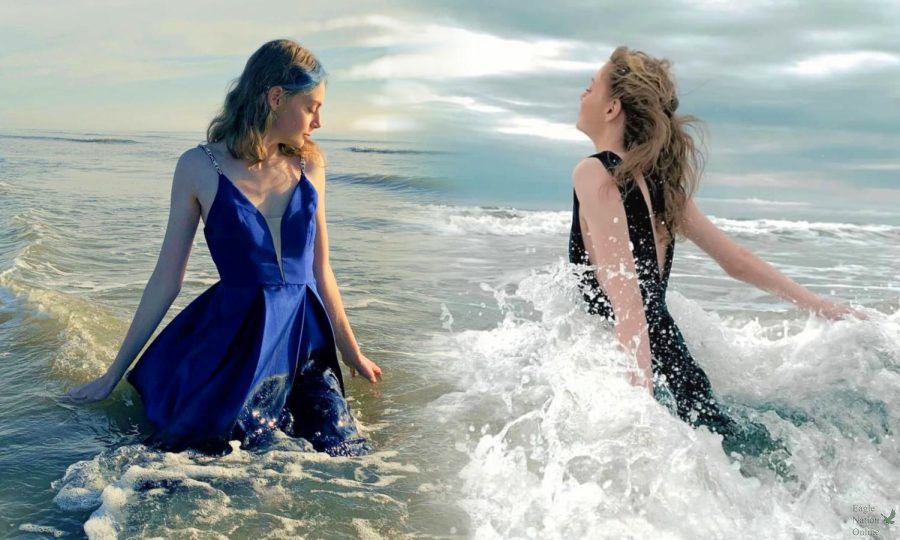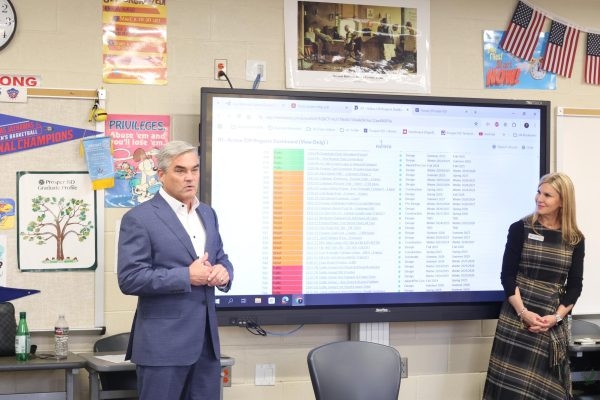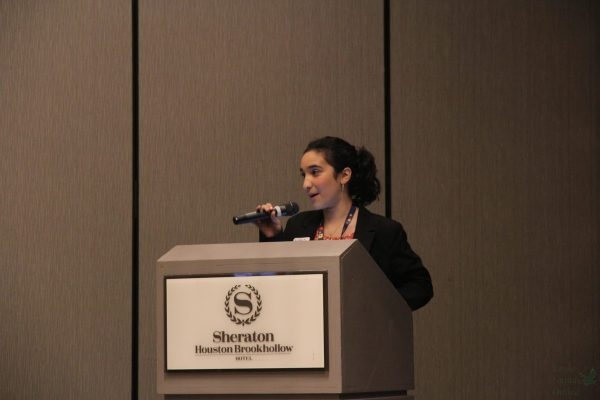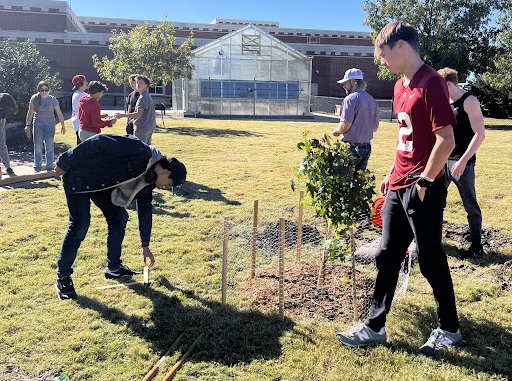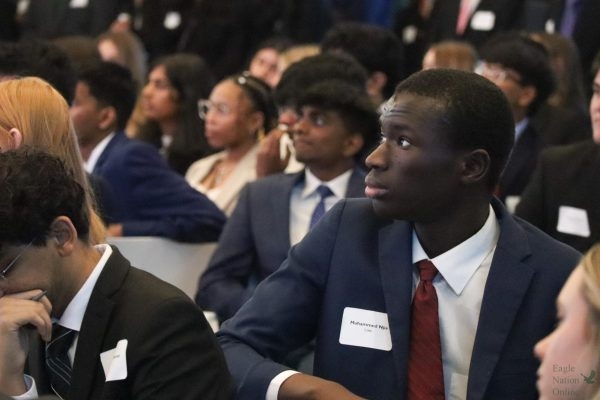‘An Anthology of the World’s End:’ Senior climate-change activist organizes collaborative anthology project
In a digitally constructed image by journalist and reporter Morgan Reese, senior Dylan Buchmiller stands in the ocean in Galveston, Texas. The photo on the left was taken during Buchmiller’s 2020 Christmas trip, while the photo on the right was taken during the summer of 2021. Buchmiller described them as “sea goddess” photoshoots.
Standing in a ball gown, senior Dylan Buchmiller watches the ocean’s waves off the coast of Galveston – sometimes observing calm waters – and other times bracing against hard waves. However, she immerses herself in her passion for water in more ways than merely watching – from testing lake water in Colorado to researching the marine aspects of climate change, such as ocean acidification and coral bleaching.
Her future plans include marine environmental science. But, for now, Buchmiller plans to work with others to change the world – one entry at a time.
As a part of the Prosper Career Independent Studies, or PCIS, class, along with her Girl Scout Gold Award, Buchmiller is in the process of creating “An Anthology of the World’s End” – a collection of climate change media intended to educate the general public. Buchmiller currently accepts outside submissions of short stories, poems, photography, art and films related to climate change at the submissions tab of her website. Submissions will close on March 21, when Buchmiller will begin the process to self-publish by May. Buchmiller will donate all profits from the anthology’s Amazon sales to non-profit environmental organizations.
“I loved the idea of an anthology project of sorts,” Buchmiller said. “I realized that I could also open up entries to other people who share my love for science, as well.”
In middle school, Buchmiller read “The Neptune Project” by Polly Holyoke, which introduced her to the world of “climate fiction” – a dystopian genre revolving around climate change. When she entered the PCIS program, Buchmiller used her middle school inspiration to start her yearlong project: “An Anthology of the World’s End.”
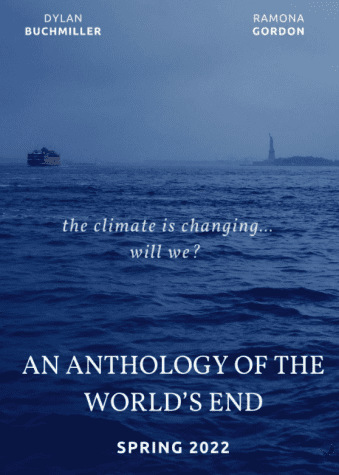
“That book (‘The Neptune Project’) was impactful because it introduced me to the science side of climate change,” Buchmiller said. “I knew that it would be unrealistic to compose an entire novel, and instead thought of creating short entries.”
Buchmiller plans to self-publish her anthology on Amazon, with the goal of making the science of climate change accessible to the public.
“The issue that my project addresses is the knowledge gap from scientists to the general public when it comes to climate change,” Buchmiller said. “The gap likely stems from any current research mostly being contained in theses and dissertations that are generally inaccessible and incomprehensible to anyone without an upper-level science education. Given that the general public are the people who can take the most action to combat climate change, this is a pressing issue, because group efforts to combat climate change are impossible if only select people have access to knowledge about it.”
Buchmiller’s mentor, AP Environmental Science teacher Ramona Gordon, taught Buchmiller last year.
“She was an online student, and was one of the best,” Gordon said. “She participated in every way possible. During our water lab, she came in person after school and ran every test I had available. Her projects were extremely detailed and showed interests in environmental (science) very early on in the first semester.”
Gordon said that Buchmiller expressed her interest in a summer internship at the Dauphin Island Sea Lab – a program where only a handful of students are selected.
“She asked me to recommend her,” Gordon said. “I did not hesitate, knowing that she would be perfect and represent Prosper in every way.”
As Buchmiller’s project mentor, Gordon has been able to recommend environmental science webinars to attend and has helped connect Buchmiller to a former student, who is pursuing a degree in environmental science at Colorado State University. Gordon said the pair has done extensive research in climate change.
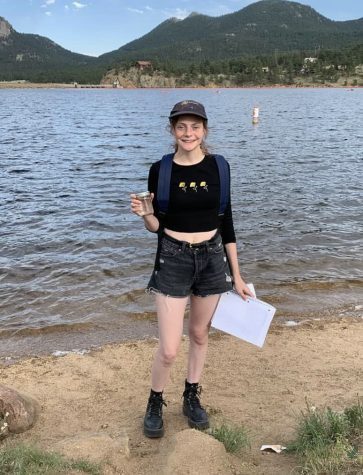
“I know Dylan’s passion is marine and water quality, but she has the potential to make a positive impact in our environment and the natural world,” Gordon said. “I am just a guide to show her the many pathways she can take to her passion.”
PCIS teacher Tiffany Ballard said she believes Buchmiller is the most knowledgeable environmentalist she has taught.
“What she taught the class so far about her knowledge of oceanography and marine biology is phenomenal,” Ballard said. “Her whole thought process on environmental sciences is really cool. I’ve seen her eyes light up when talking about animals and the research that she’s done. It’s very contagious. When you see her talk about it, you get on board, and you want to be a part of it, too.”
The PCIS class is a self-paced research course, and Ballard said she has needed to do very little for Buchmiller’s project.
“Dylan is the proto-typical, perfect student – where she came in with a vision. She came in with her contacts of who she wanted to contact, and who she wanted to go after and research – and has flourished,” Ballard said. “I’ve sat back and learned from her. She’s taught me about what she’s learning, which is how, really, the class is supposed to be set up.”
Ballard said she believes that Buchmiller has grown more confident throughout the course.
“I feel like she has come out of her shell, so to speak,” Ballard said. “I do think that she has a great grasp of who she’s around, and she doesn’t hold back her views – not that she did that before – but I feel like the whole class has gotten much more comfortable when we have to talk about hot topics, which environmental science is one of the hot topics. I do feel that Dylan has gained confidence in her voice of being able to speak up when she sees that something is right or wrong. Not that she didn’t before, but I do think that the more comfortable and the more she’s around us, I think we’re able to see more of that passion come out.”
After publication and graduation, Buchmiller will attend the University of Portsmouth in the United Kingdom — a school Buchmiller said she has dreamed of attending since eighth grade — to major in Marine Environmental Science.
“For a specific career, I can see myself working in the research field or for non-profit organizations, and later as an educator,” Buchmiller said. “Overall, I’ve decided to dedicate my life to reducing and repairing the harmful effects of humans on the environment.”
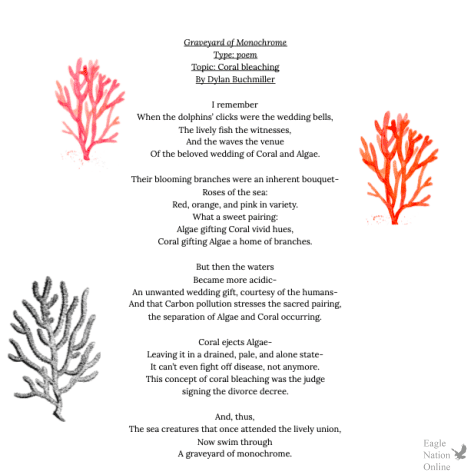
Your donation will support the student journalists of Prosper High School. Your contribution will allow us to purchase equipment and cover our annual website hosting costs.
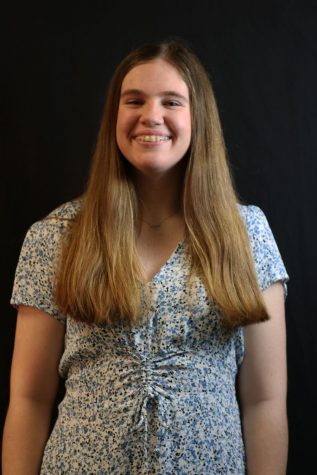
Honors & Awards:
2 Best of SNO publications
Dallas Morning News National High School Competition 1st place
Quill and Scroll National High School News Competition 2nd place
Quill and Scroll Honor Society Member
2020 TAJE Fall Fiesta: Superior Portrait, Honorable Mention News-Feature Photo
2021 TAJE Fall Fiesta: Excellent Sports Reaction, Honorable Mention Feature Photo
Interscholastic League Press Conference 2021 individual achievement awards:
Top in Texas: Feature photo
2nd: Photo Slideshow
3rd: Portrait
Honorable Mention: News Feature



